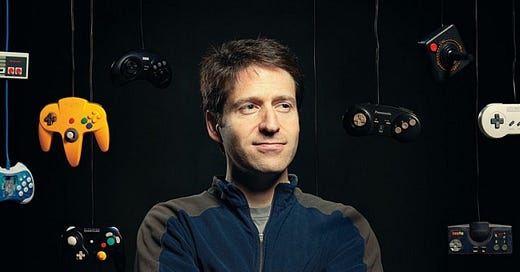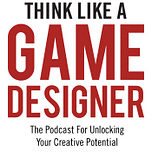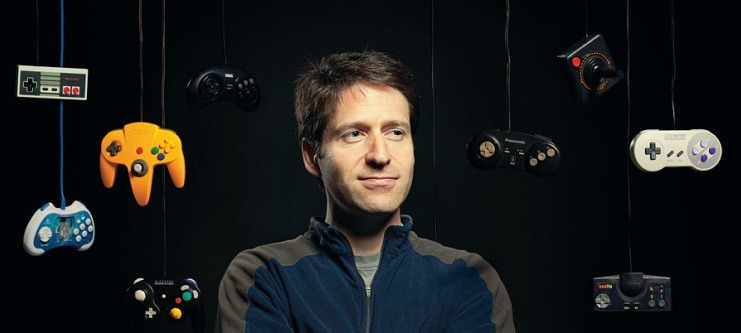About Alexander Seropian
Alexander Seropian joins us on today’s episode, bringing his vast expertise from decades in the video game industry. Alex is the founder of several influential game companies, including Bungie, Wideload Games, Industrial Toys, and Gunslinger Studios. He has also held leadership roles at Disney and Microsoft, overseeing teams of more than 100 people. Among his many accomplishments, Alex is best known for co-creating the iconic game Halo and for being a driving force in game design and industry innovation. In addition to his executive work, Alex has served as an advisor and investor in numerous startups.
In this episode, Alex shares his journey, from his early days growing up in the 80s and programming on an original Mac, to founding Bungie and navigating the challenges of building and leading teams. He dives into what it takes to manage through failure, the lessons learned from his entrepreneurial ventures, and his thoughts on the future of gaming, including the roles of VR, AI, and Web3. Alex’s insights into game development, team building, and navigating the ever-evolving game industry provide invaluable wisdom for creators at every stage of their careers. Enjoy!
Want to support the podcast and get more design lessons?
Paying subscribers enjoy an abundance of extra game design content and an exclusive newsletter with new lessons, archive access, videos, and more! By opting for a free or paid subscription, you can get the latest articles delivered to your inbox and support this podcast!
Ah-ha! Justin’s Takeaways
Resilience in Entrepreneurship: Alexander quotes a previous guest, Jordan Weisman, who says, “entrepreneurship is like getting punched in the face repeatedly.” This is a powerful reminder of the persistence required to succeed. As I continue to grow my business and face inevitable challenges, this takeaway reinforces the importance of staying resilient and pushing through adversity. For more on entrepreneurship in gaming, check out the episode with Jordan Weisman.
The Importance of Team Building: Alexander’s insight that “the project is the team” emphasizes how important it is to surround yourself with the right people. Success comes from how well the team functions together—a reminder for me to keep investing in my team’s structure and cohesion to ensure we’re always aligned with our goals. This point is so important to me that the first part of Stone Blade’s company motto is: “Work with Awesome People.”
Adaptability is Key: The lesson that “no plan ever goes as planned” is invaluable because, whenever you launch a new project, it's tempting to think you can plan for everything—yet, that's impossible. Once your plans are in motion, they collide with reality, bringing random and unexpected results. Flexibility and the ability to pivot are essential for long-term success in game design. Alexander’s experience reinforces that being adaptable and embracing new opportunities is crucial to overcoming unforeseen challenges and driving projects forward.
Show Notes
“I very much remember the day my dad brought home an Atari 2600. […] He brought that home, and I just fell in love.” (00:02:58)
Alex discusses his early passion for video games, sparked by the Atari 2600. This love for gaming set him on the path to becoming a game designer and entrepreneur. The lesson here is that early inspiration can shape a lifelong career in the gaming industry.
“Entrepreneurship is like getting punched in the face repeatedly.” (00:06:49)
Alexander discusses the harsh realities of entrepreneurship, explaining that success in the gaming industry requires resilience and the ability to endure constant challenges. He emphasizes that entrepreneurs must push through setbacks and failures to achieve long-term success, highlighting the importance of perseverance for game developers and business leaders alike.
“The project is the team.” (00:11:03)
Alex explains the importance of team dynamics in game development, emphasizing that the success of a project depends on the quality and organization of the team. For game developers, this highlights how vital collaboration and strategic role assignments are to any project’s success.
“No plan ever goes as planned. The ability to adjust, to pivot, or to lean into strengths is critical.” (00:15:54)
Alex discusses the necessity of flexibility in game design and entrepreneurship. He shares that no matter how well-thought-out a plan is, things will go off track, and the ability to adapt is the key to navigating those challenges and emerging successfully.
“We've shipped our 12th game in less than a year and a half.” (00:19:34)
Alex discusses the rapid iteration and productivity in the UGC (user-generated content) space. He explains that using platforms like Fortnite allows for quicker game development cycles, making it easier to experiment and test ideas. This underscores the value of agility and speed in today’s gaming industry.
“If you understand what the goals of the platforms are, you can align your game with those goals and improve your chances of success.” (00:31:00)
Alex shares his insights on navigating platform algorithms and discovery systems. He stresses the importance of understanding the platforms you're using, aligning your game with their values, and optimizing for their specific metrics, like engagement or playtime.
“When you're faced with a challenge, […] reflect on what you just learned, and then ask yourself: Do I need more time, a different approach, or different people?” (00:47:03)
Towards the end of the episode, Alexander discusses the importance of reflection and adaptability when facing game design and entrepreneurship challenges. He explains that when things aren't working, assessing the situation is crucial, as is determining if you need to adjust your approach, gather different resources, or give the project more time. This is another instance of how the importance of flexibility and strategic thinking can lead to solutions even in the toughest situations.















Share this post